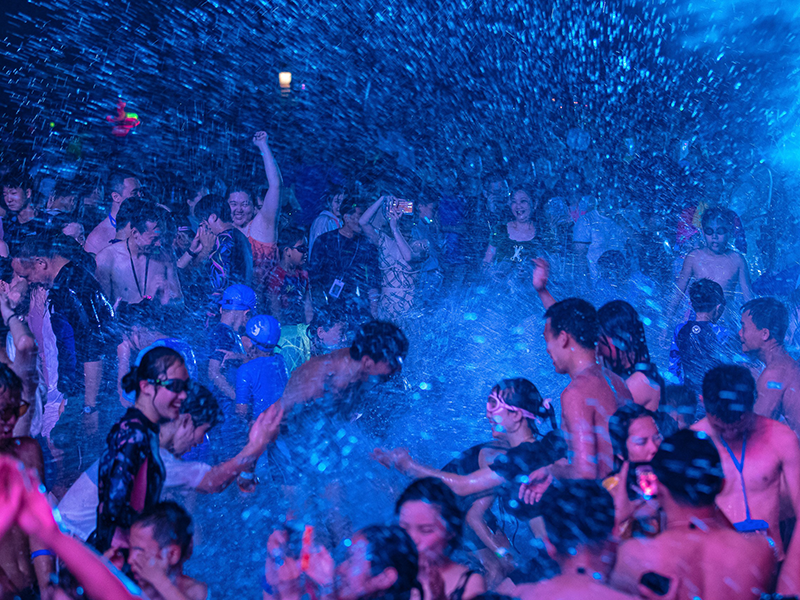Operating During a Pandemic

Agility, employee retention, cost control, targeted and innovative marketing.
Two years into the pandemic, these practices have never been more important to attractions operators, who must cope with new COVID-19 variants, ever-changing government regulations, and the complexities associated with hiring and retaining front-line staff.
“It’s a new form of operating; there’s no doubt about that,” says Alan Mahony, vice president for marine and water park operations at Atlantis Sanya. “You need to be on top of everything that’s happening and be able to react quickly to the market. Things can change by the day.”
Mahony should know. The past year has been a roller coaster for Atlantis Sanya, with some months near peak capacity and others at record lows, depending on COVID-19 case counts and local government rules.
“Our biggest thing that we want to do is stay profitable and make sure we don’t lose any staff,” he adds.
The pandemic has led Mahony to rethink the balance between full-time and part-time employees and to devise a series of new operational plans based on market conditions.
“We have a core number of permanently employed people and then part-time staff on top of that,” he notes. No full-time staff has been laid off since the start of the pandemic, though at times, they have been required to take annual leave or work part time. During these periods, Atlantis Sanya organizes parties, special meals, and sporting events for out-of-town staff who must take days off but cannot return home due to travel restrictions.
In the water park, lifeguards are full-time employees, but ride attendants, who manage queues and hand out tubes for the Rapids River, are not. Part-time staffing levels, on the other hand, can be adjusted quickly, thanks in part to tie-ups with local universities, where hospitality training is a major area of study.

Staffing levels in the water and marine parks are a function of the resort’s hotel occupancy. During normal periods, Atlantis Sanya often operates with an occupancy rate of more than 90%, but if occupancy drops to 60% or 40%, new guidelines kick in to cut costs. At the same time, the resort’s sales and marketing team is tasked with examining why there’s a drop and which markets should be targeted with new promotional campaigns to counter it.
For example, last October, the family travel market disappeared almost entirely, as concerned parents did not want to risk a COVID-19 case that would prevent their children from going to school. To counter the drop in family visitors, Atlantis Sanya successfully targeted singles with ads featuring young couples in their 20s. When the December holidays rolled around, ad campaigns shifted to attract expatriate families, who would normally holiday outside the country, but currently cannot due to travel restrictions.
Geography also comes into play. Beijing used to be Atlantis Sanya’s second-largest market, but a virtual ban on travel related to the Winter Olympics has led the company to refocus on Shanghai, where there a large number of expatriates. Yet if a COVID-19 case is reported in Shanghai, travel from the entire city, or at least a part of it, would be instantly curtailed, leading the company to target another region of China or perhaps the local Hainan Island population.
To stand out from local competitors, Atlantis Sanya has also pushed innovative package deals that promote scuba diving and photographed mermaid experiences. Becoming a mermaid for a morning or afternoon has been a particularly popular promotion since the resort set a world mermaid record last year and, more recently, held China’s first national mermaid competition.

